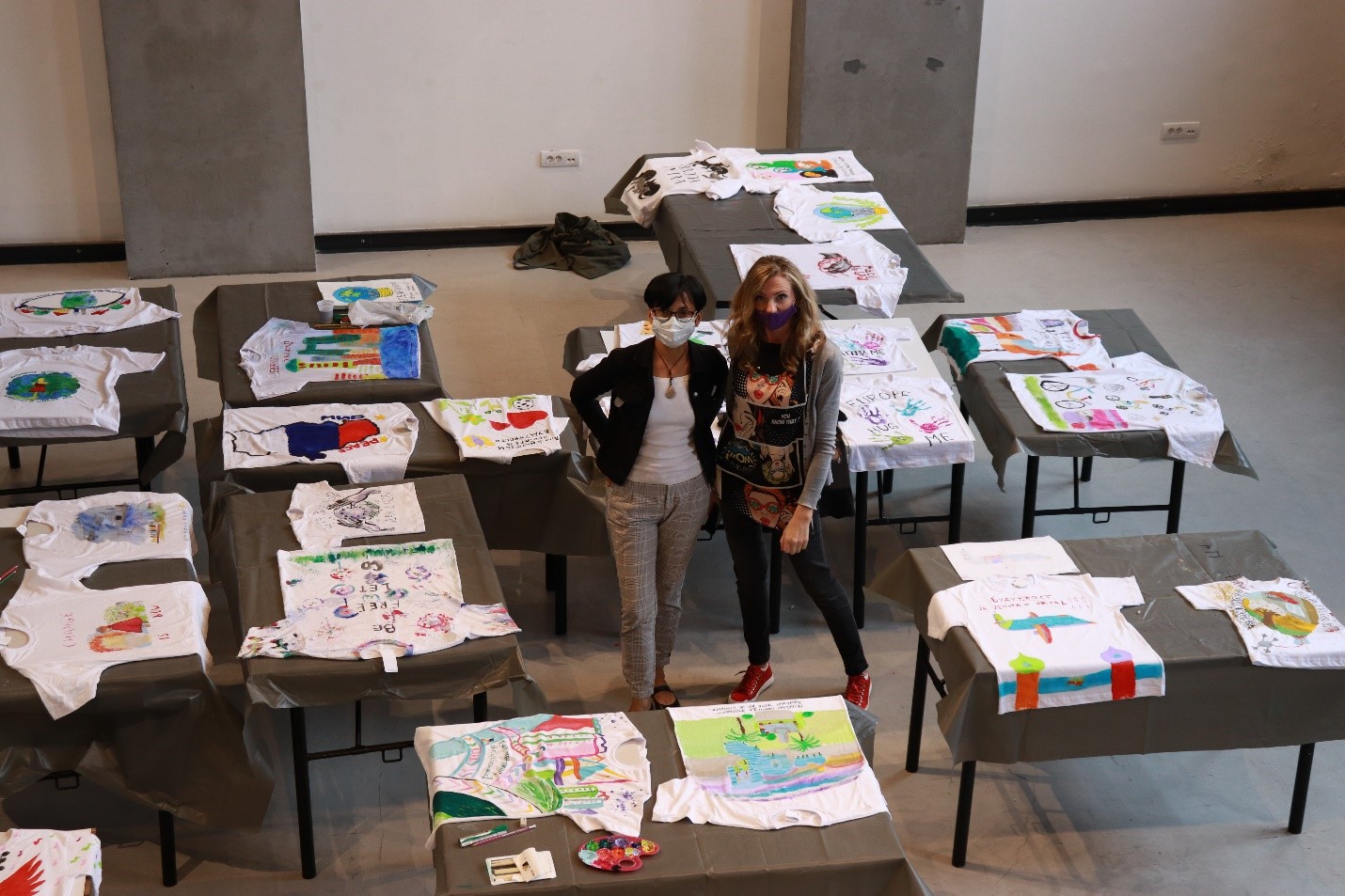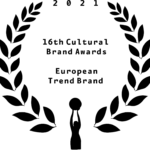This year, the youngest citizens and youth had the opportunity to express their thoughts, ideas and attitudes through the ‘Reflective Citizens’ project, which is being implemented within the Future of Europe programme arch.
They did it by painting and drawing within art workshop, but first they talked about how they see the future of Europe. ‘The Youngest Reflective Citizens – Thinking Through Drawing and Painting’ workshop resulted in 36 T-shirts made by children from seven elementary and three secondary schools in Novi Sad and its surroundings, with the help of mentors, teachers, parents and volunteers.
On that occasion, we talked about the project and its idea with Marija Jevtić and Snežana Mandić, the workshop leaders. Marija, a full professor at the Faculty of Medicine in Novi Sad, is also a full member of the Association of Group Analysts Belgrade, which is the project leader while Snežana is a professor of art and advisor – external associate of the Ministry of Education.

How was the idea for the ‘Reflective Citizens’ project born and when did the implementation begin?
Marija: The ‘Reflective Citizens’ project in Novi Sad was launched thanks to the enthusiasm of the members and leaders of the Psycho-Social Section of the Society of Group Analysts Belgrade. Since 2014, Novi Sad has become a refuge for ‘Reflective Citizens’. This is a psychosocial workshop that uses the Tavistock tradition of psychoanalytic-systemic approach for understanding society and working with organizations, and was modelled on an international workshop called Listening Post (LP) and represents the integration of LP, group analysis, social dreaming and group relations conferences. ‘Reflective Citizens’ in Novi Sad use (cultural) spaces with the desire that they awaken many associations that encourage cultural dialogue and civic awareness for the time we live in.
What does the ‘Reflective Citizens’ workshop look like?
Marija: All interested citizens are welcome. No prior preparation is required, only the will and desire to spare time and share thoughts. We start by ‘giving away’ dreams – social dreaming (the session is led by Ivana Nina Flašar), which helps to associate with the present and start associations. This is followed by a reflection; sharing experiences and thoughts about the present moment from the different roles, that each of us has in our daily lives. As the leader of ‘Reflective Citizens’ in Novi Sad, I would like to mention the leaders of programmes in Serbia, group analysts – Marina Mojović and Jelica Satarić. Our workshops are special because of an intensive connection with art, cultural heritage, exchange of thoughts on diversity, which can be the basis for togetherness and inclusion of the youngest citizens, i.e. children, into thinking.
How did the cooperation with the ‘Novi Sad – European Capital of Culture’ Foundation come about and in what way that cooperation contributes to the project?
Marija: Having in mind the content and the manner of our work, the idea that ‘Reflective Citizens’ should be a part of the activities of Novi Sad as the European Capital of Culture was born. As Novi Sad is a multinational and specific multicultural environment, we wished the workshops to migrate through various inspiring cultural spaces of Novi Sad, to be open to citizens who wish to think, contribute to multiculturalism, tolerance, better social environment and building motivating bridges in communication. We offered our capacities and thus started cooperation with the Foundation, with the desire to contribute to a positive cultural climate, building cultural capacities and fostering cultural dialogue.
This year, ‘Reflective Citizens’ were also our youngest. What did the process of working with them look like, what were they like?
Marija: Workshops are now traditionally held twice a year. We choose inspiring cultural spaces and deal with the question of how children feel in the times we live in, how they see their future in our city and how they imagine the future of Europe. We thought that expressing oneself through drawing was close to them and came up with thinking through drawing/painting. Nevertheless, the workshop itself was the culmination of a careful process of preparation and joint work. Snežana Mandić is an art pedagogue, I am a doctor and a group analyst, and we called Ana Vucelja, a professor of literature, for help. We have dedicated September to working with children and their mentors. They came to the workshop ready to present their sketches, reflections and views on the future on T-shirts.
What surprised and thrilled you most about children? How important are projects that are outside the classic school curriculum for their development?
Snežana: From the earliest age of children we can read a lot from their drawings and find out what they feel, what they think about, what bothers them, and what makes them happy. That was exactly the goal of our workshop – to find out through the language of art what children consider important and what they would change in their future. With the help of imagination and with the help of artistic elements – lines, colours and shapes, the children gave each T-shirt a unique and original look, while showing us their thoughts and visions when it comes to the future of Europe, and how they see their future. We think that there is no better way than for the youngest citizens to tell us their story about the future by drawing and painting. We really got a real little wealth of thinking.
Due to the coronavirus pandemic, protection and prevention measures had to be respected at the workshop. How demanding was it and how did the children adjust?
Marija and Snežana: The inevitable topic today is the pandemic crisis, both for adults and for children. The ideas about the art workshop and the whole preparation process were intertwined with a complex epidemiological situation. Since our desire was to find a way to implement the project (through curriculum and extracurricular activities), despite the situation we all find ourselves in, we are witnessing the mature behaviour of children, their patient acceptance and respect for measures. Regular hand disinfection and mask wearing accompanied both the period of preparation at school and the workshop itself. However, that did not affect the exceptional results of artistic expression on the topic of the future of Europe. We are proud of how the children reacted during the workshop, which we started outside and continued inside due to the rain, and how they efficiently and carefully moved all their materials for work.
What is the future of the ‘Reflective Citizens’ project, i.e. what awaits us in 2021?
Marija: ‘Reflective Citizens’ in Novi Sad, as a form of gathering and space for cultural dialogue, are connected with the idea and activities of the European Capital of Culture through strengthening cultural identity, nurturing hospitality and encouraging cultural heritage, contributing to understanding migration processes, contributing to conflict resolution, nurturing and improving public spaces and nurturing diversity. In this rhythm of cultural dialogue, fostering common thinking and with the participation of children in different ways, we will continue in 2021 and 2022 and beyond, both at our already traditional gatherings and special activities for the youngest citizens with the desire to express their view on the future of Novi Sad and their future as citizens of Europe.


